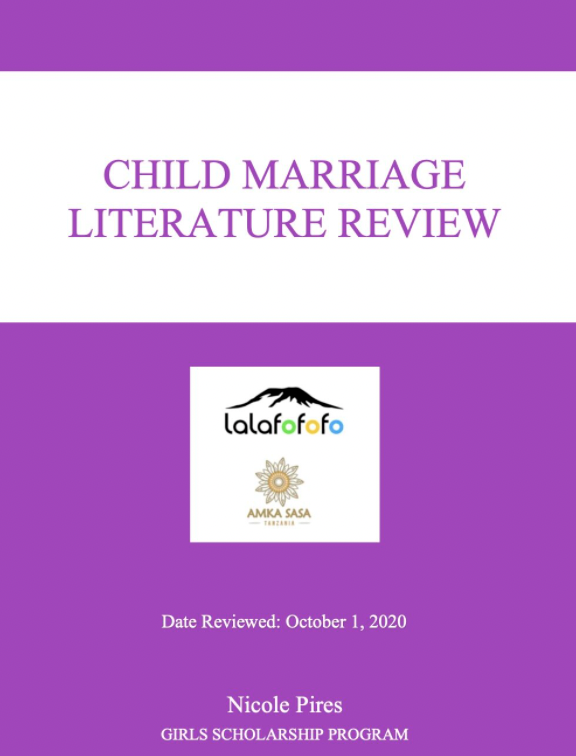Q. 1
What is child marriage?
Child marriage, or early marriage, is defined as any marriage that involves a child below the age of 18, before the child is physically and emotionally prepared to take on the responsibilities of marriage and childrearing. 650 million girls alive today have been married as child brides.
Q. 2
What is the state of child marriage in Tanzania?
In 2020, Tanzania ranks 11th in the world for the highest absolute number of child brides: 779,000. For context, the number of child brides consists of 2.7% of the female population and 1.3% of the total population in Tanzania. Child marriage is more prevalent in rural areas, but is also present in urban populations, typically within families or communities with poor economic conditions or strong religious and cultural ties.
Poverty is considered to be the leading cause of child marriage in Tanzania. Most child marriages that take place in Tanzania are customary marriages where the husband gives money, cattle, clothing or some other form of wealth for the bride. This form of payment or dowry is called the bride price, or mahari. Younger, “purer” (non-sexually active) brides are valued more and will provide their families with a larger mahari.
Q. 3
What is the relationship between child marriage and girls’ lack of access to education?
Child marriage is both a cause and consequence of girls’ lack of quality education. Tanzanian girls who marry young are more likely to drop out of school or not be allowed to return to school; and girls who drop out of school or have lower educational attainment are more likely to marry young.
Q. 4
What is Lalafofofo doing to help prevent child marriage?
Education is one of the most important and powerful tools to end child marriage. Lalafofofo’s Girls Scholarship Program provides at-risk child brides with a safe group home and scholarship program to fund their education through secondary school and vocational school or university. We partner with the school principals and teachers, families and community members to monitor for cases of child marriage and child sexual assault and coordinate planned interventions when needed. The GSP works specifically in the Mlima Shabaha village in the Kilimanjaro region. Through our programs we hope to continue reducing the child marriage prevalence rate (27%) in the region.
Q. 5
What can I do to help end child marriage?
Educate Yourself: Check out theses sources
Volunteer (see opportunities page)
Advocate
If you live in a country with a high prevalence rate:
Make Sure the Minimum Age for Marriage is 18.
Raise awareness among government officials and community leaders of laws criminalizing child marriage to ensure their enforcement.
Petition for better access to birth certificates and marriages registration offices.
If you live in a country with a low prevalence rate:
Check to see if your country provides aid to a high-prevalence country. If so, petition your government to make equal access to education for girls a mandatory stipulation for aid.
4. Empower Girls
“Every girl has the right to decide her own future, but not every girl knows this – that’s why empowering and educating girls is crucial to ending child marriage. When girls are confident in their abilities, armed with knowledge of their rights and supported by peer groups of other empowered girls, they are able to stand up and say “NO” to injustices like child marriage. Empowered girls are able to re-shape perspectives and challenge conventional norms of what it means to be a girl.” — Plan International
5. Provide Income Opportunities
Given the important role poverty plays in the practice of child marriage, providing economic opportunities for women and rural families can help prevent child marriages that are a result of financial need. Families that have greater income opportunities are less likely to view their daughters as economic burdens and better support their daughters’ education. Lalafofofo works to provide income opportunities for women living in the Mlima Shabaha village through our Women’s Craft Cycle. Learn more here.

